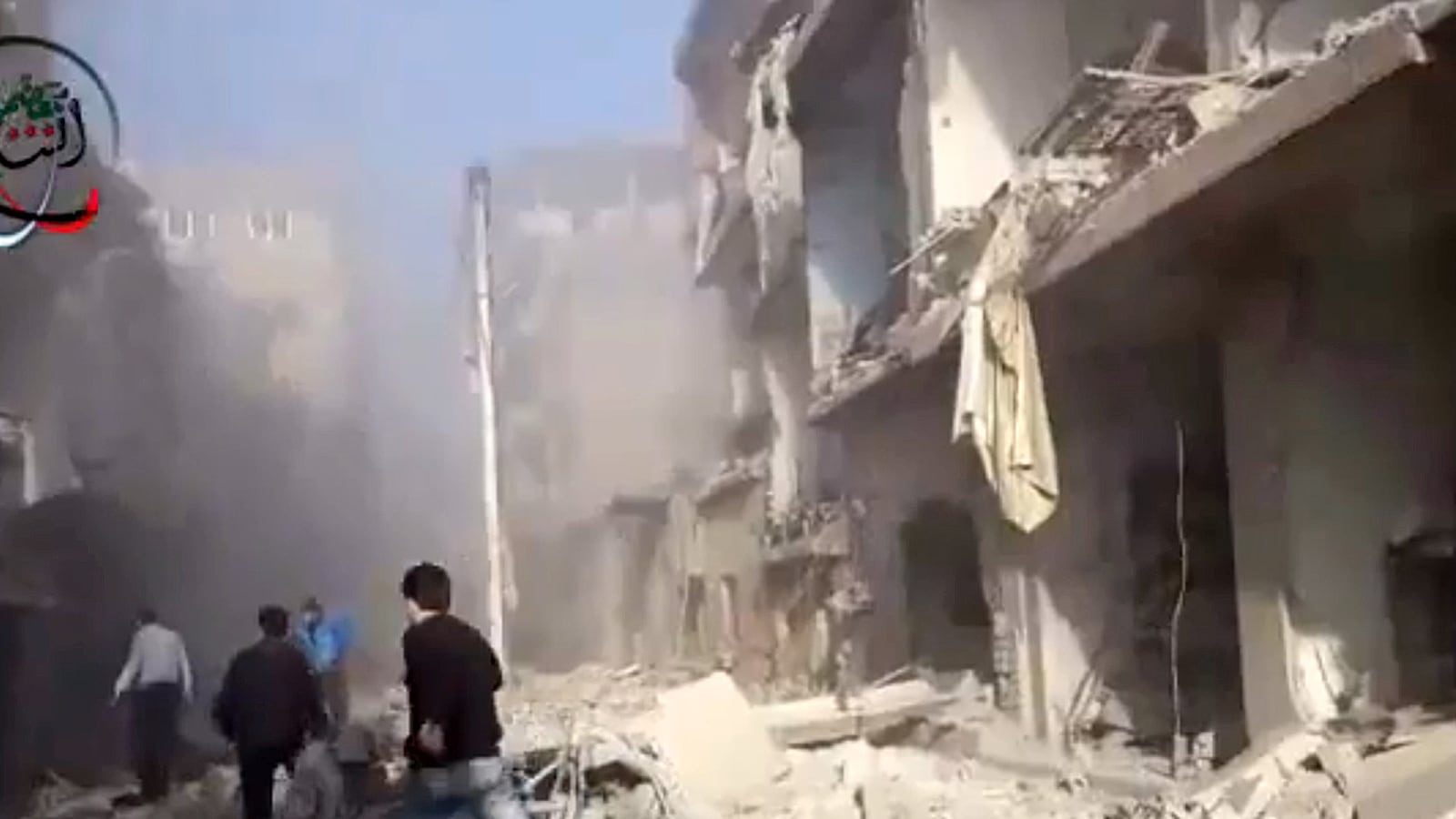The deadly shelling of one of Syria’s largest universities in Aleppo on Tuesday came as the rebel campaign there approached the six-month mark, offering a stark reminder of the entrenched nature of the country’s war. Despite months of combat and carnage that have decimated the once-elegant commercial capital, the battle for Aleppo remains far from won, with both sides locked in a brutal stalemate. It’s a far cry from the rebels’ surge of optimism that accompanied their initial push into Aleppo this summer, when some thought the city might quickly fall to the opposition, and the government of President Bashar al-Assad along with it.

In Damascus, following a surge by the rebels there late last year, their momentum has likewise seemed to be tempered of late. Though opposition fighters managed to push close to the center of the heavily-secured capital, and even shut down the city’s commercial airport, they have since found themselves held back in their strongholds by a merciless government campaign. Like Aleppo, Damascus is now mired in an endless back-and-forth of gunfire, bombings, and aerial assaults of rebel-held neighborhoods by Assad’s warplanes.
Analysts say the rebels there remain far from their goal of tipping the balance in the capital their way. “I really do believe that the regime can hold Damascus until the bitter end,” says Joseph Holliday of the Institute for the Study of War in Washington, D.C. “Not all of it. They already don’t hold all of it. But they can control downtown Damascus,” and other strategically important areas.
Holliday says the Syrian government has adopted a strategy of containment—giving up ground to rebel strongholds in the suburbs, then targeting them with artillery and airstrikes, while working to keep rebels away from key points of interest like the heavily secured city center.
The result has been a wave of destruction. In the days leading up to the attack on Aleppo University—in which twin blasts killed more than 80 and wounded more than 160 as students took exams—opposition activists relayed harrowing reports of women and children killed in government airstrikes in the Damascus suburbs amid one of the most intense attempts yet by the government to drive the rebels back. “I think the rebels have been forced to halt their push into Damascus for now, on account of the brutal bombardment of host suburbs by the regime,” says Ammar Abdulhamid, a U.S.-based dissident and fellow at the Foundation for Defense of Democracies.
Holliday notes that the rebels face a similar problem in Damascus as in Aleppo—while they have managed to take control of certain neighborhoods, those areas immediately become targets for government forces, which have shown little hesitation to decimate civilian neighborhoods in their pursuit of the rebels. The government has played this up to their advantage, in an apparent attempt to turn ordinary Syrians against the opposition. “The dynamic that seems to work among the population is to blame the rebels for bringing this upon them, not the regime” Holliday says.
The government has also blamed the rebels for unclaimed bombings over the past months and for Tuesday’s attack on Aleppo University, which the opposition has in turn pinned on the government.
For their part, opposition activists say rebels in the capital have not stalled, but are working instead to regroup and strengthen their hold on neighborhoods under their control. They also say that rebels continue to inflict heavy casualties on the government. An activist who goes by the nickname Lena, with a group called the Damascus Media Office, said ambulances could regularly be heard transporting government casualties away from Daraya, the rebellious Damascus suburb that has been central to the rebel bid for the city. She also said rebels were preparing for another push to seize areas held by the government. “They are preparing themselves,” she said.
Still, she acknowledged that a sense of unease lay heavy on the capital. “Nobody knows what will happen in Damascus,” she said.
Firas Abi Ali, the acting head of Middle East and North Africa forecasting at Exclusive Analysis, a risk-consultancy firm in London, predicts that Aleppo would fall to the rebels by the spring, citing their success in choking off supplies to government forces in the city. This would be a significant gain for the opposition, which has yet to claim a major city in the conflict. But he cautions that a crucial win in the capital remains a long way off. “They still can’t mass their forces in significant enough numbers to take on the government strongholds there,” he says. “They can infiltrate well-secured areas, and they can control the city's suburbs. But when the government assaults begin with the heavy artillery and air force—the insurgents just can’t hold their ground against that kind of firepower.”
Despite speculation over Assad’s imminent demise—or reports such as one published earlier this week in Saudi Arabia’s al-Watan newspaper, later picked up by the global intelligence firm Stratfor, that he is actually living on a Russian naval ship off the coast of Syria and occasionally dropping into Damascus by helicopter—the president still appears to want to show off his supposed strength in the conflict. Earlier this month, he gave a defiant speech along those lines at the Damascus opera house, less than a few miles from the scene of some of the capital’s heaviest fighting. In the speech, he sought to dispel the idea that he might be open to negotiating an exit from power—a sentiment he doubled down on this week, with the announcement that he would stand for reelection in 2014.
But most analysts expect that Assad will soon face another push from the rebels in Damascus—and that the capital will remain battered by conflict for months to come. “The battle is not over,” says Abdulhamid of the Foundation for Defense of Democracies. “As usual, in a few weeks, after reconsidering their tactics, regrouping and acquiring some more supplies, a new drive [by the rebels] will begin. Giving up is simply not an option for either side.”




